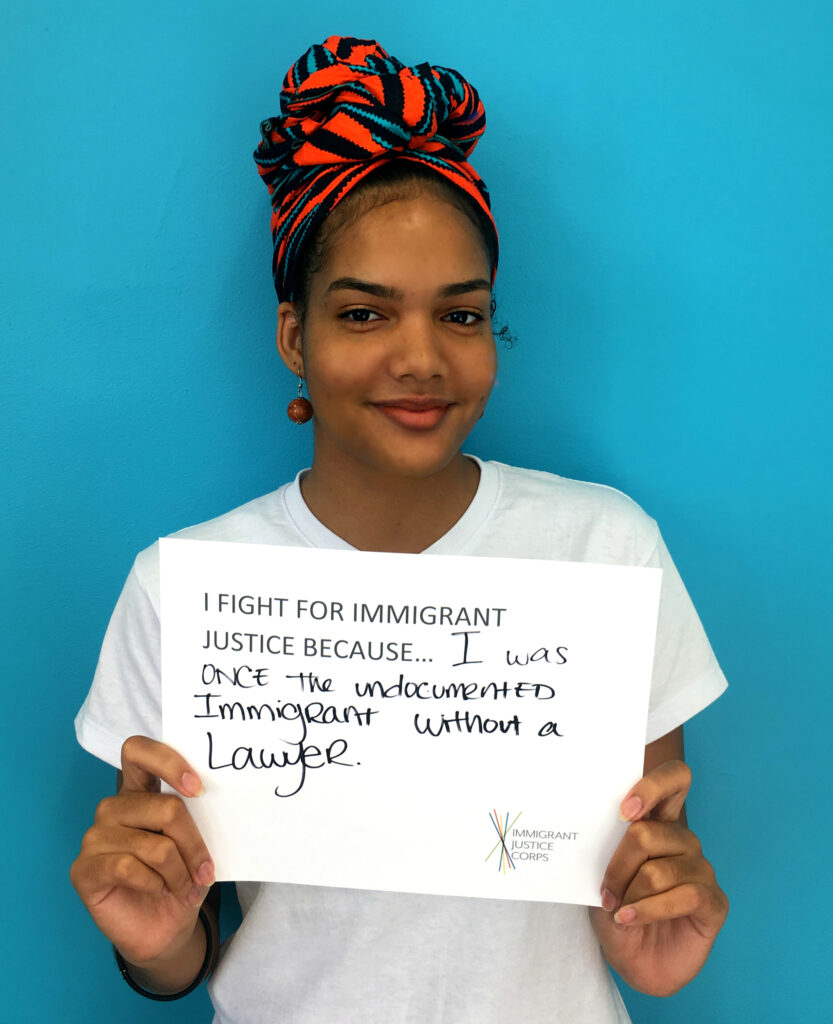Listening as a tool of advocacy - Melissa Segarra
Immigration attorneys often deal with vicarious trauma as they spend months and even years representing clients who’ve suffered horrendous abuse. In the fight for immigrant justice, 2023 Justice Fellow Melissa Segarra talks about the importance of trauma-informed advocacy and the power of empathetic listening.
As a law student, I was taught that being a good lawyer is about being a logical thinker, a skilled researcher, a great writer, and a formidable orator. But after working almost eight months in the field, I would argue that being a good lawyer is just as much, if not more, about building trust and being a good listener. As one wise IJC lawyer once told my cohort during our training “Cases move at the speed of trust.”
Early in my Justice Fellowship, I took on a Violence Against Women’s Act petition for a young Palestinian mother named Samira.* Samira’s husband had been verbally and physically abusing her for years and had refused to move forward with Samira’s green card application. Samira’s husband often used her immigration status to control her, telling her if she ever called the police on him, he would get her deported and separate her from their infant daughter. Samira decided that she did not want her infant daughter to grow up in a home marked by domestic violence, so she found the strength to leave her husband and sought legal help.
Having had my own experiences with domestic violence, I knew how difficult it could be to talk about one’s story. To help Samira feel comfortable telling me hers, I knew it was imperative to earn Samira’s trust. To build trust, I prioritized my client’s mental health and healing journey, making sure we did not delve into sensitive topics too soon into our interviews and carefully framing my interview questions. This approach helped Samira disclose details of her husband’s abuse and its effect on her at her own pace. Throughout this process, I witnessed Samira transition from feeling angry and upset about her situation to expressing hope and optimism about her future. Though the interview process was lengthy, spanning around four months, it was necessary to build trust with my client while prioritizing her agency and her healing journey.
This case also drove home the importance of listening as a tool of effective advocacy. As an attorney, I love being a problem solver. But it became clear during my representation of Samira that this was not always possible. One morning Samira called me terrified because she had read that a landlord in Chicago had stabbed his Palestinian tenants, including a six-year-old boy who died from his injuries. Samira told me that she was too frightened to leave her home. Over months, Samira has told me that she fears for the lives of her family in Palestine, all of whom reside in the West Bank. She explained that Israeli settler violence and Israeli military presence had increased in the West Bank following the October 7 attacks and that her family was scared and depressed. She revealed that she had also been approached on the street by strangers who acted threateningly towards her and her daughter, seemingly for her Palestinian identity.
The problem solver in me wanted to make Samira’s problems go away, but I knew there was nothing I could do in this situation. All I could offer to Samira was an empathetic ear. Rather than offer empty platitudes, I let Samira know that my door was always open if she needed someone to listen. Though this may seem like a small gesture, it helped Samira feel seen and aided in building trust. I realized that, while I could not solve all of Samira’s problems, the act of listening is a strong tool of allyship and a powerful means to healing.
*Names have been changed to protect the privacy of the individual.
Want to be a Justice Fellow like Melissa? We are recruiting for the 2025 Class of Justice Fellows! Learn more.
